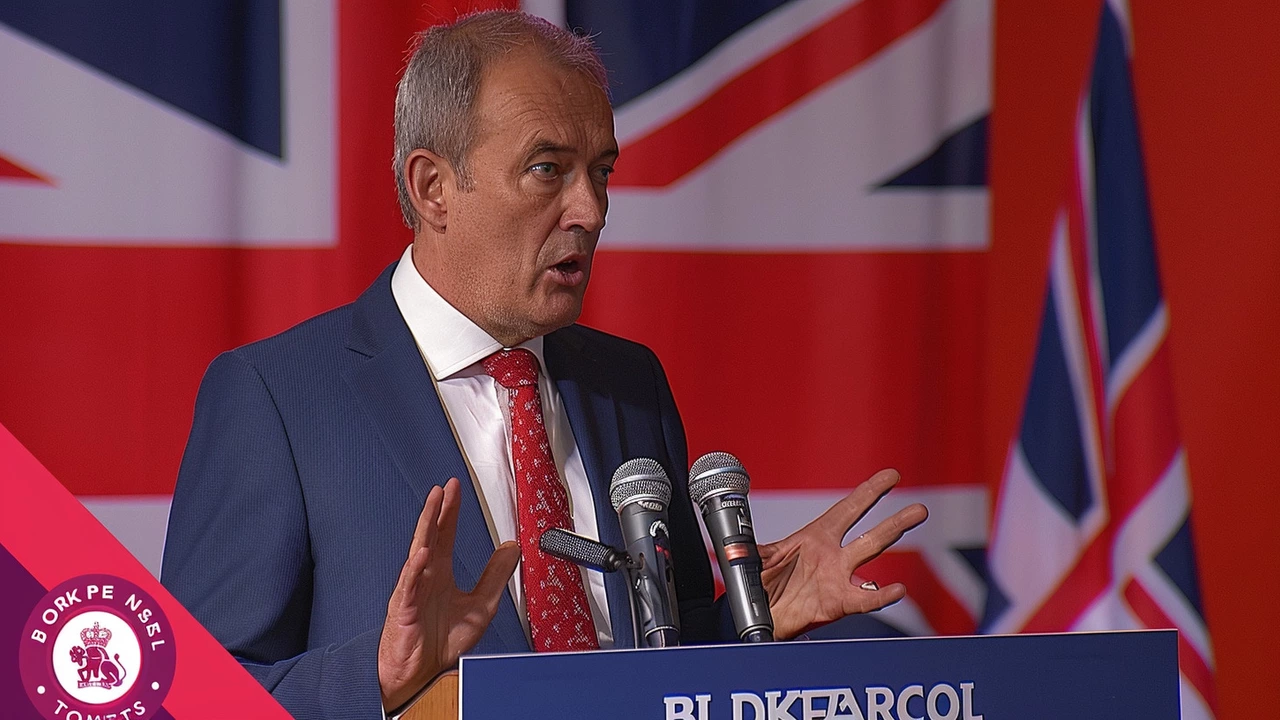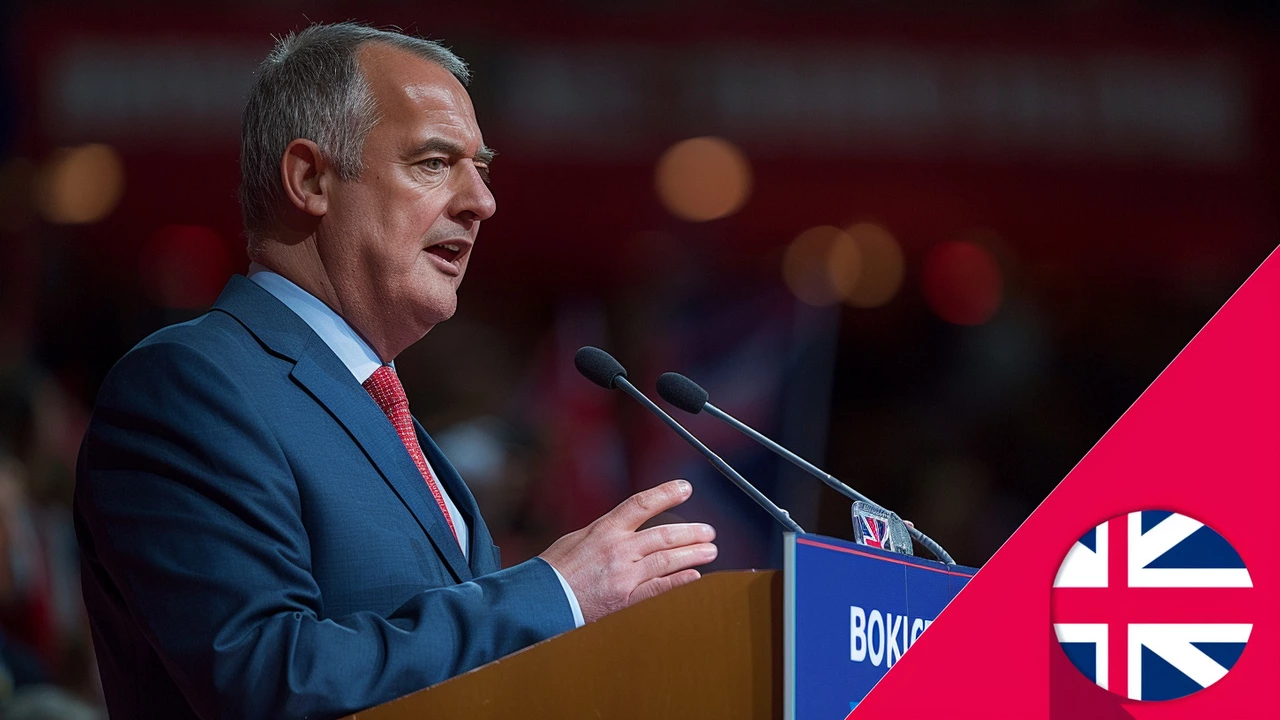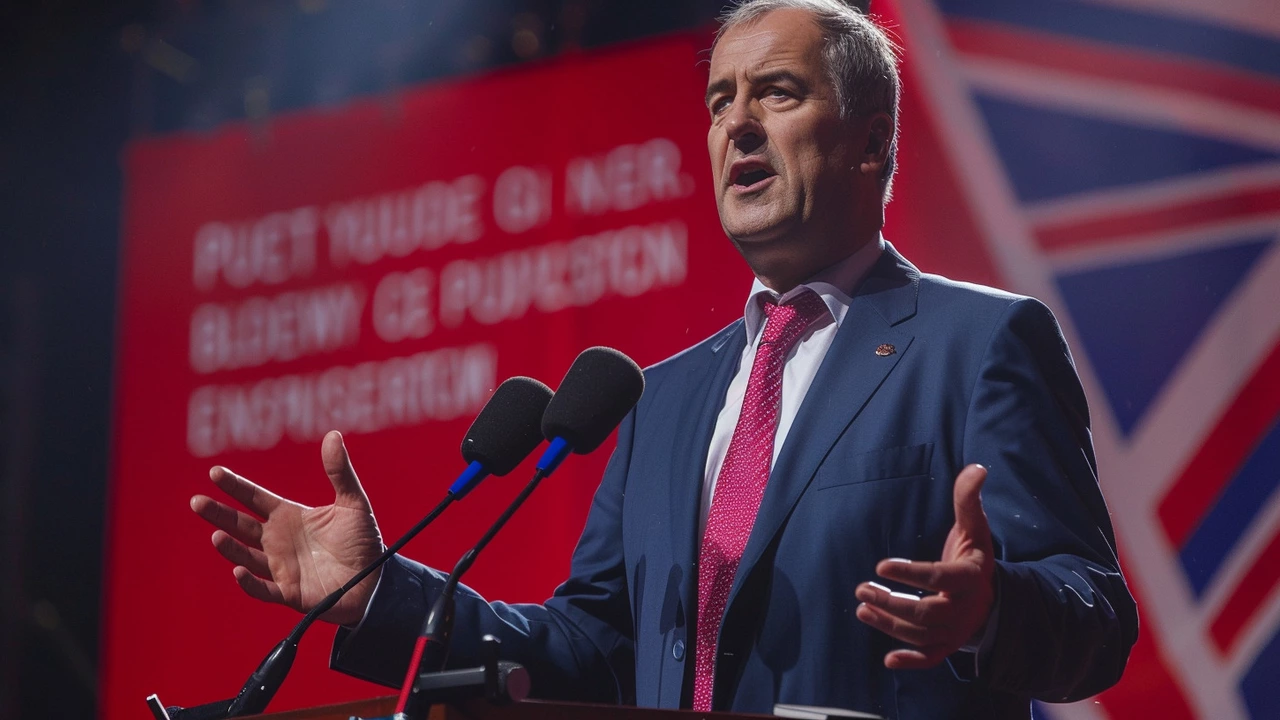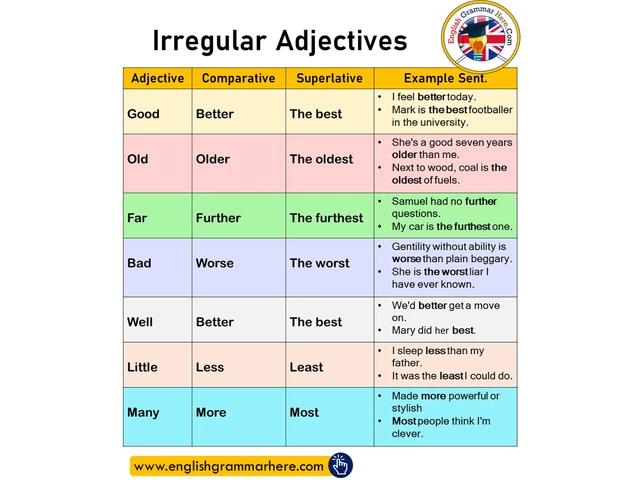In a recent on-air broadcast, BBC News presenter Geeta Guru-Murthy found herself at the center of controversy as she issued an apology to Nigel Farage, a key figure of the Reform UK political party. The apology was for previously characterizing Farage's speech at a Reform UK press conference as 'customary inflammatory language.' This incident highlights the tightrope journalists must walk to maintain impartiality, especially during the heated atmosphere of an election campaign.
Initially, Guru-Murthy described Farage's comments in a manner that drew attention for its perceived bias. Her description as 'customary inflammatory language' did not sit well with Farage, who has been an outspoken advocate for his party's policies. In a subsequent broadcast, Guru-Murthy took a step back, retracting her earlier characterization and acknowledging that it had not aligned with the BBC's stringent editorial standards on impartiality. She offered a formal apology to both Farage and the BBC's viewers for the oversight.
This incident transpired in the context of the general election campaign, which poses unique challenges for media outlets in maintaining neutrality. The pressure on journalists to report objectively is especially intense, given the polarized political climate. The BBC, known for its commitment to fair reporting, has stringent guidelines to ensure that its presenters and reporters do not show bias toward any political figure or party.
The timing of this incident is crucial. As the BBC rolls out its coverage plans for the upcoming general election, expectations for unbiased reporting are at an all-time high. Laura Kuenssberg and Clive Myrie are set to lead the election night lineup, bringing extensive experience and credibility to the broadcast. Additionally, the BBC will facilitate debates between Prime Minister Rishi Sunak and opposition leader Keir Starmer, which are anticipated to be pivotal moments in the election coverage.
Nigel Farage, a magnetic but controversial figure in British politics, often finds himself at the heart of media storms. Known for his plainspoken and provocative rhetoric, Farage has both ardent supporters and vehement critics. The characterization of his speech as 'inflammatory' fed into the existing narrative that critics use to define his style of communication. However, it also raised questions about the media's responsibility in framing political discourse.
The Role of Journalistic Impartiality in Election Coverage
Journalistic impartiality becomes profoundly significant around election time. Media outlets like the BBC bear the responsibility of ensuring that their coverage allows for fair and balanced representation of all political perspectives. This incident with Guru-Murthy underscores the delicate nature of that responsibility. Reporters and presenters must be keenly aware that their words carry profound weight and potential influence over the electorate.
For the BBC, any perceived lapse in impartiality can lead to broader scrutiny of its editorial practices. Guru-Murthy's apology, therefore, signifies a corrective measure, reinforcing the broadcaster's commitment to fairness. It also serves as a reminder to presenters to adhere closely to the network’s guidelines to avoid unintentional biases.

Impact on Nigel Farage and Reform UK
For Nigel Farage and his supporters, the apology might come as a welcome acknowledgment of what they perceive as a frequent mischaracterization by the mainstream media. Farage has often argued that the media misrepresents his positions, painting him in an unfairly negative light. This public retraction could provide him with additional fodder to criticize the media during his campaign, potentially rallying his base further.
At the same time, this incident might heighten the sensitivity around how media outlets cover political figures known for their polarizing rhetoric. For Reform UK, the event presents both a challenge and an opportunity – a challenge in how they continue to navigate media narratives, and an opportunity to present their case to voters as victims of unjust portrayal, thereby possibly garnering sympathy and support.

The Bigger Picture: Media and Public Perception
The relationship between media and public perception is inherently complex. Incidents like these blur the lines between perceived bias and actual impartiality. For viewers, it raises questions about the reliability and objectivity of their news sources. In a era where 'fake news' and media skepticism are rampant, maintaining trust is pivotal.
A critical takeaway from this incident is the importance of vigilance in journalistic practices. As news consumers, being aware of the nuances and pressures faced by journalists can lead to a more discerning approach to media consumption. For journalists, it reinforces the necessity of self-scrutiny and adherence to ethical standards in their reporting.
As the general election campaign intensifies, incidents like these serve as a microcosm of the broader challenges faced by media outlets. The BBC’s response and Guru-Murthy’s subsequent apology aim to shore up confidence in its editorial practices, reaffirming its role as a pillar of fair journalism. This careful balancing act will be tested repeatedly as the election date nears, with every slip scrutinized and debated in the public sphere.
For now, the focus remains on the lessons learned and the steps taken to ensure such lapses do not recur. As viewers prepare for a flurry of election coverage, the emphasis stays firmly on unbiased, accurate, and comprehensive news reporting.
In summary, Geeta Guru-Murthy's on-air apology to Nigel Farage, following the characterization of his speech as 'customary inflammatory language,' shines a spotlight on the delicate nature of impartial journalism, especially during an election season. The BBC’s steadfast commitment to maintaining neutrality underscores the significance of unbiased reporting in shaping public opinion and upholding democratic values, and the incident serves as a pertinent reminder of the ever-present responsibility borne by the media.




